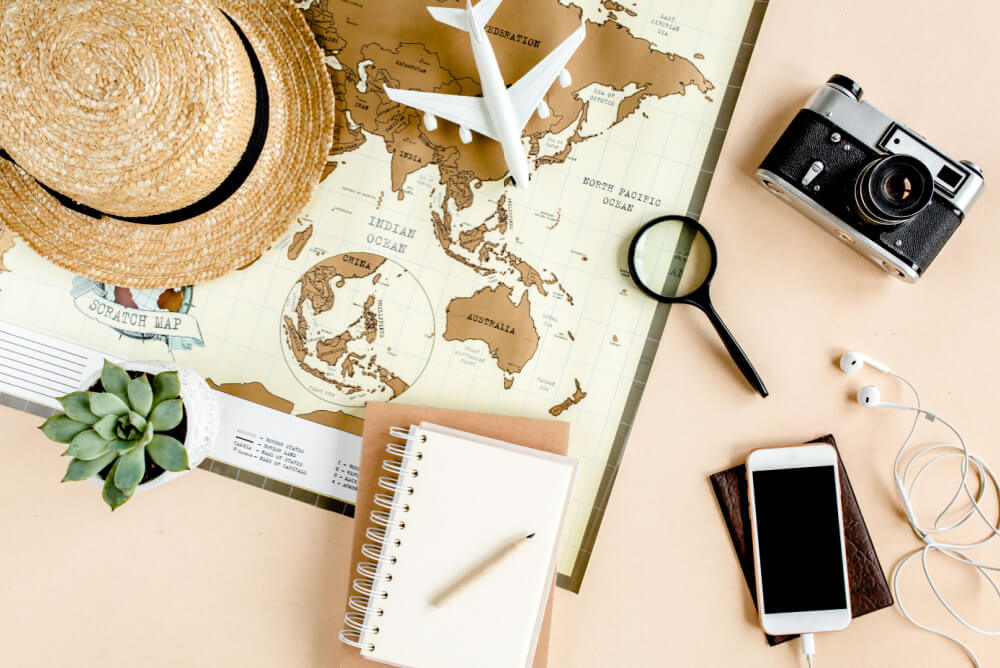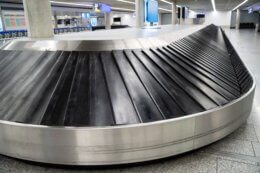
Repairing a broken bone, recovering from a terrible bout of Bali belly or paying for an emergency medical evacuation from a cruise aren’t usually expenses we factor into our holidays, but Compare the Market warns that unexpected accidents or illnesses abroad could cost you an arm and a leg without having the right travel insurance in place.
Statistics show that more than one million Aussies jetted abroad in July – an increase of 526,030 people compared to the same time last year. And while Australians are happy to fork out their hard-earned cash on flights, accommodation and activities abroad, travel insurance is likely to be near the bottom of their to-do list – even though it could save you thousands in medical treatment if the worst were to happen abroad.
Compare the Market’s General Manager for General Insurance, Adrian Taylor, said it recently proved a lifesaver for one Aussie couple, who took a serious tumble just hours into their Japanese skiing adventure.
“We’ve had a couple who purchased travel and ski cover insurance for a two-week Japan ski trip costing them just over $500, and unfortunately, one of them tore a calf three hours into their ski trip,” Mr Taylor explained. “Their initial hospital treatment after the incident, as well as physio sessions, an upgrade for the flight home so that they were able to keep their leg elevated and telehealth check-ins every few days were covered by their policy while they were in Japan.
“Overall, they were reimbursed just over $900 worth of benefits once they touched down back in Australia. Of course, this is just one example and we know that some injuries and illnesses can cost thousands of dollars.
“Just 11 countries have Reciprocal Health Care Agreements with Australia, meaning you’d be left to foot the medical bill if you fell ill or had an accident in popular destinations like Japan, Indonesia, the US, India or Canada. Without having travel insurance in place to help cover the costs, your dream holiday could easily turn into an expensive nightmare.”
However, it’s worth noting that not all travel insurance policies are the same, which is why it’s vital to do your research. For example, there are great variances in cover between basic and comprehensive and even between the same level of cover from different providers. Travellers are advised to scrutinise each policy and see if it fits their needs, and review if there is a need for extra cover such as ski, adventure sport or cruise cover.
“We’re seeing a few differences in cover between the policy providers and their levels, so it’s paramount that people read through each travel insurance policy disclosure statement to ensure that they getting the coverage that they need,” Mr Taylor said.
“For example, activities like skydiving, surfing, hiking, skiing or even cruising may not be standard inclusions on your policy and you may be required to add them on to be covered overseas. Additionally, you may be not covered by your standard policy for any losses relating to natural disasters, so if you’re considering going to a destination that is prone to natural disasters, it may be prudent to add it as an optional extra to your cover.
“It’s also important for people to know what might prevent them from being able to claim on their insurance. From intentionally breaking the law to driving under the influence or even leaving your personal items unattended in a public place, your insurer may not pay out a claim in full or at all if you’ve done the wrong thing.”
Mr Taylor said it also pays to get travel insurance ticked off the list as soon as flights are booked to ensure people are covered from the get-go.
“While many people believe that travel insurance is only for the period of travel they applied for, we advise people to purchase travel insurance as soon as they have something booked in, as in most cases travel insurance can extend from the day you purchase until you return,” Mr Taylor said.
“This is to cover any unforeseeable accidents or incidents which lead to people cancelling their trip altogether. Of course, travel insurance is also there to help cover cancelled trips, lost luggage and more.
Cover ranges from personal liability if there are damages to property or other people, illness and injury which you may sustain overseas with some policies also covering pre-existing medical conditions so that if anything does flare up, travellers are covered.
“We’ve seen time and time again, how these benefits payout prepared travellers, in cases where the worst does occur,” Mr Taylor said.
Mr Taylor’s top tips for staying safe abroad:
Purchase your travel insurance policy as soon as you can following the booking and the payment of any deposits – this way you can maximise the value of your policy and ensure you have immediate cancellation cover should you need to cancel your trip.
Don’t leave your personal items unattended in a public space – this includes the foyer of your hotel as you grab a taxi – as any theft claims on items that were in a public space may not be met.
Always declare any pre-existing medical conditions as you compare and apply for travel insurance to ensure you have the cover you need. This way there’ll be no surprises if you are injured or become ill while travelling.
If you’re going on a cruise or go skiing, snowboarding or another adventure sport, be sure you add extra cover for these activities as these are unlikely to be covered under general travel insurance.
If you are a frequent traveller and planning on going on holiday more than once a year, you may find greater value in purchasing annual cover.
-ENDS-
For interviews and more information, please contact:
Noémi Hadnagy | m: 0433 377 252 | e: noemi.hadnagy@
Compare the Market is a comparison service that takes the hard work out of shopping around. We make it Simples for Australians to quickly and easily compare and buy insurance, energy, travel and home loans products from a range of providers. Our easy-to-use comparison tool helps you look for a range of products that may suit your needs and benefit your back pocket.








